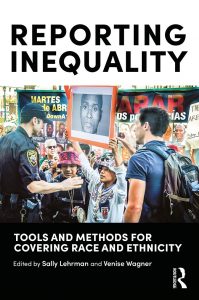The issue of poverty is complicated, oftentimes convoluted, and has an effect in many arenas, including writing about economics and money.
It is important to keep the human interest element in these stories in order to respectfully discuss the role of economics in poverty. If you lose the human interest element, you are doing those experiencing poverty a disservice.
Money and economics are the reason those experiencing poverty are in their situation, but economics cannot be separated from issues such as politics and human rights. Venise Wagner, co-author of “Reporting Inequality: Tools and Methods for Covering Race and Ethnicity,” said she sees all of the issues being connected. Economic issues cannot be completely separated from racial inequality issues.
The components of our society add up to the issue of inequality as a whole. You should not cover poverty without covering the economic and social justice beat at the same time, added Wagner, a journalism professor at San Francisco State University.
Wagner gave an example about home ownership. She said that we know there is a wealth gap, and we know the wealth gap is tied to home ownership. The wealth gap is the systemic problem in the United States of unequal distribution of assets amongst citizens of the country. Home values are often worth less in communities of color than in white neighborhoods. She said economic and racial issues cannot be separated.
“They’re all tied together and I don’t see covering them differently,” she said.
Poverty is a social justice issue just as much as it is an economic and political issue. Co-author Sally Lehrman described these tightly bound issues as “interlocking structures.” She said that often, journalists cover the issue of poverty in one of two ways. They play it as a human interest story or as an economic story for the business beat.

“We often have these two extremes. We rarely bring them together in an individual story, and that’s a real disservice,” said Lehrman, who has covered social issues related to the science beat and is CEO of The Trust Project.
Stories involving poverty should not just be about a single human experience or just about economic policy. Every economic policy and situation has effects on human beings, and the story is incomplete without talking about both, she said.
The authors say it is unfair to those in poverty to not cover the stories from every angle.
“With racial inequality, usually economic inequality is tied into that. The policy that is going to dictate where people are going to be living, for example, also dictates the value of their homes, if they own their homes. Policies end up having racialized outcomes,” said Wagner, a journalism professor at San Francisco State University and a previous reporter for both the San Francisco Chronicle and the San Francisco Examiner.
The beats and coverage areas cannot be separated when covering poverty, and humanizing the issue while explaining to readers its economic and political impact is a critical step for credibility when covering poverty today and in the future.
Savannah Ware is a fourth year majoring in journalism at the University of Georgia.

